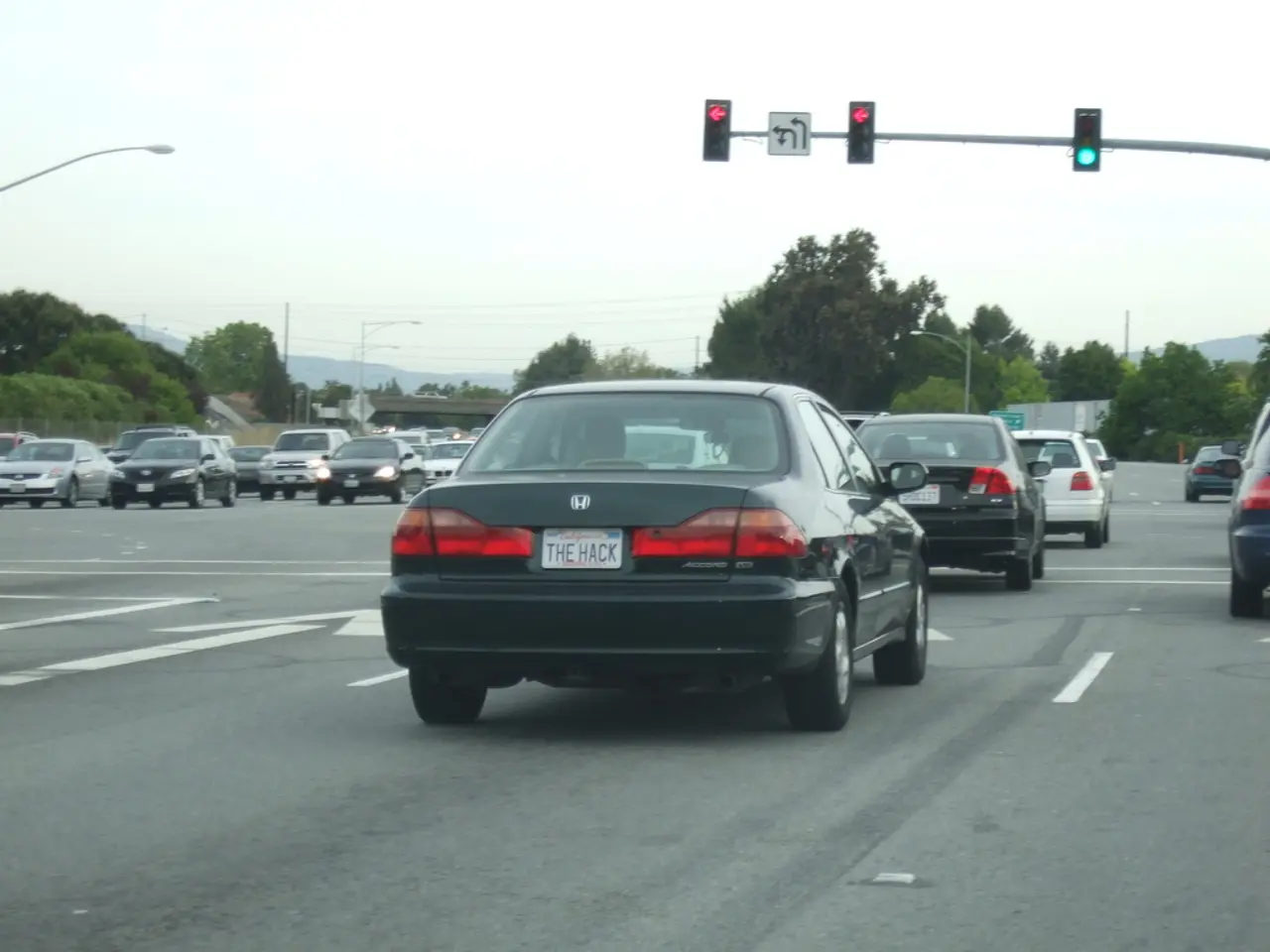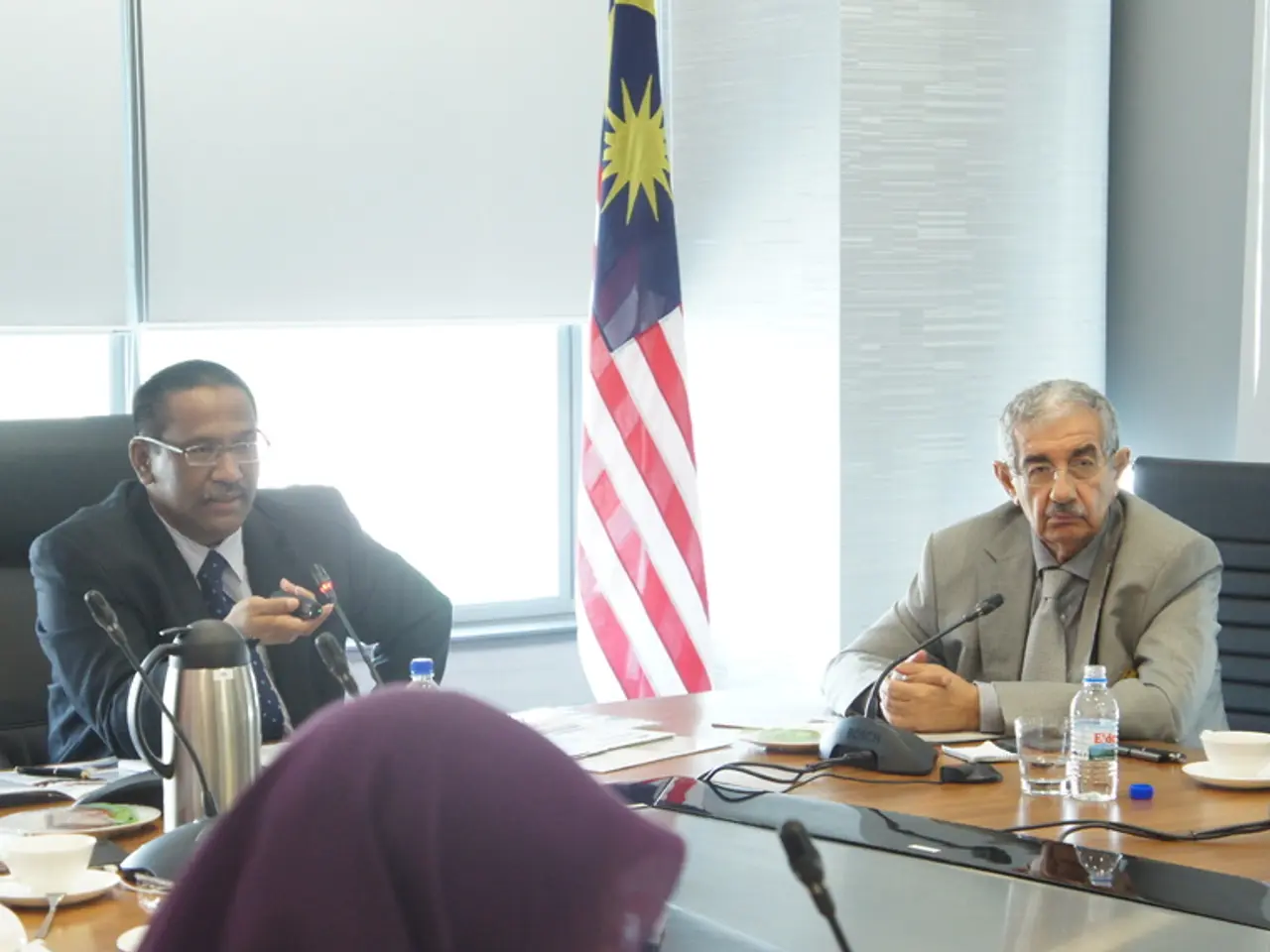Republicans in the U.S. are now shifting the blame towards Trump
In a significant move, President Donald Trump's recently passed legislative package, commonly known as the "One Big Beautiful Bill" or Trump's domestic policy bill, is reshaping the economic and political landscape of the United States.
## Economic Impacts
The bill, which makes most of Trump's 2017 tax cuts permanent, is expected to have a significant impact on the economy. According to independent analyses, these tax breaks primarily benefit wealthy Americans, though the administration claims continued annual savings of $10,000 for low- and middle-income families. However, the Yale Budget Lab estimates the bill will increase the federal deficit by at least $3 trillion over the next decade.
The bill also raises the federal debt ceiling by $5 trillion, providing fiscal breathing room but potentially raising long-term concerns about national debt sustainability. On a positive note, the bill includes targeted tax incentives to accelerate private investment in next-generation infrastructure, supporting job creation and modernizing sectors such as air traffic control.
The reforms also include sweeping changes to entitlement programs like Medicaid and SNAP, which could reduce federal spending in these areas but may disproportionately affect vulnerable populations. Certain industries, like credit unions, received targeted relief, such as protection of tax-exempt status, which may support financial stability for millions of consumers.
## Political Impacts
The political fallout from the bill's passage is nuanced. The bill represents a major victory for Republicans and the Trump administration, energizing their base through a combination of tax relief, border security, and infrastructure modernization. However, significant cuts to social programs like Medicaid and SNAP, as well as the focus on tax relief for the wealthy, may galvanize Democratic opposition and could become focal points in next year's congressional elections.
In states such as Oregon, the bill is expected to disproportionately impact low-income and rural residents, potentially shifting voter sentiment in vulnerable districts. The successful passage and signing of this comprehensive package may bolster Republican claims of effective governance, but the long-term deficit increase and social program cuts could also be liabilities in the upcoming election cycle.
## Summary
The immediate economic impact of the bill centers on fiscal stimulus, targeted investment, and social program cuts, while its political effects will likely shape the narrative and party positioning heading into the 2026 congressional elections. Trump has announced that he will inform countries about the import duties their companies will have to pay for exports to the USA starting this weekend. If the Republicans lose a handful of seats in the House of Representatives in 2026, the Democrats will have the most seats in the legislative chamber. Currently, the Republicans hold a very narrow majority in the House of Representatives. The opposition Democrats refer to the legislative package as "big and ugly".
The European Parliament has also expressed its concern in the general-news sphere at the recent political events in the United States, as the passing and signing of the "One Big Beautiful Bill" has both economic and political implications for the nation. This legislation, reshaping the US economic and political landscape, is stirring controversy as it disproportionately affects certain sections of American society, including low-income and rural residents, and its long-term deficit increase and social program cuts may provoke strong reactions from Democratic opposition in the upcoming congressional elections.







